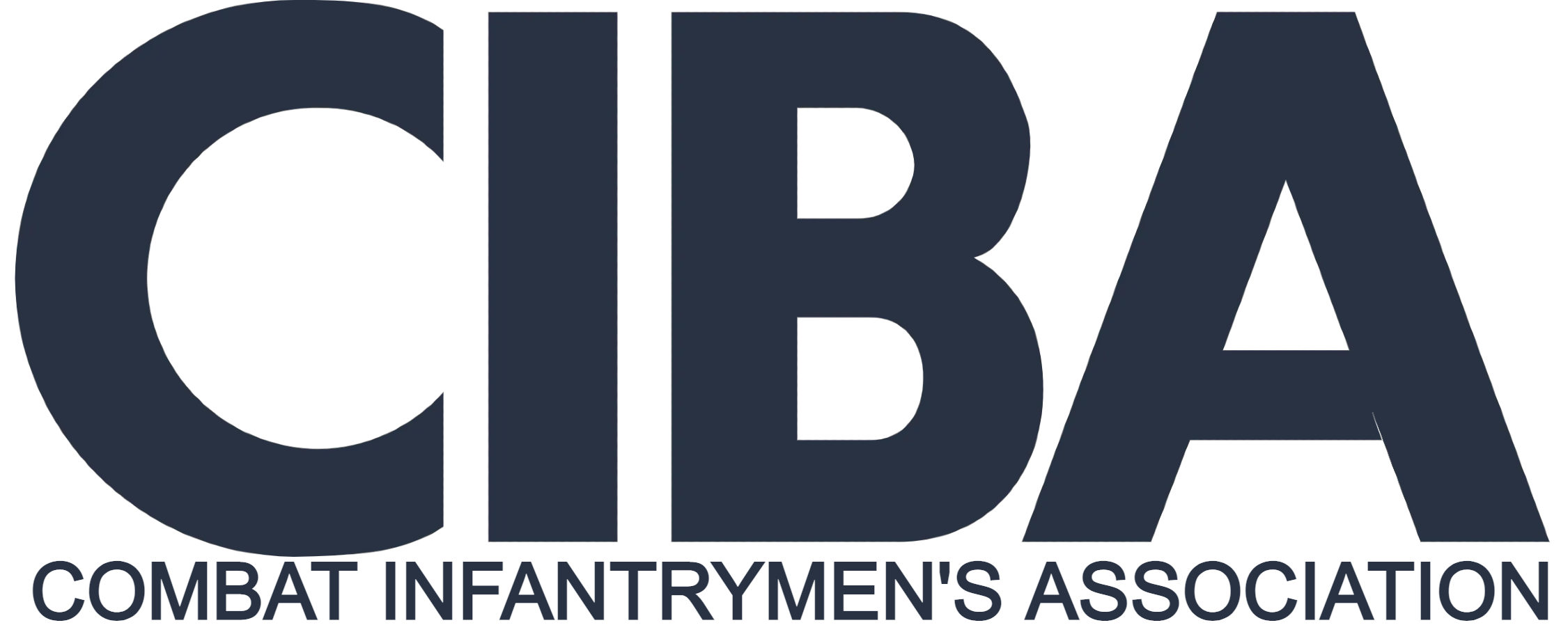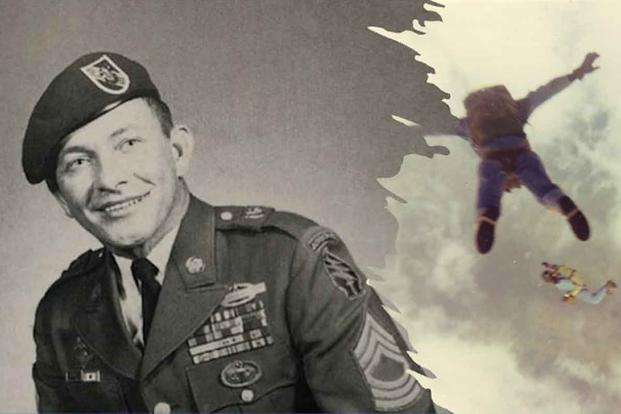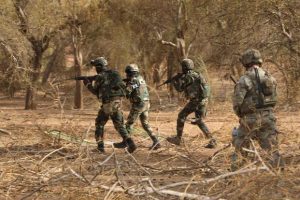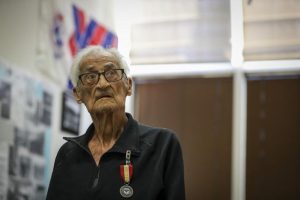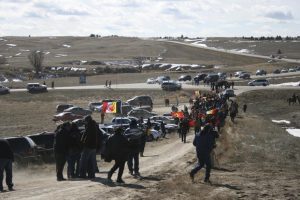To say William “Billy” Waugh was a legend in the Special Forces community is more than an understatement. He was very nearly mythological.
The unparalleled godfather of the Green Berets, and CIA septuagenarian at the spearhead of early operations in Afghanistan, passed away Tuesday. He was 93.
Waugh was on any short list of famed operators who deployed to the Korean, Vietnam and Afghanistan wars, serving in dozens of countries in his more than 50-year career with Special Forces and the Central Intelligence Agency.
In Vietnam, he was almost fatally wounded, later receiving a Silver Star. Despite the wounds, he returned to the war after recovering at Walter Reed. In the ’70s, he was the first soldier to conduct a high-altitude, low-opening jump — known as a HALO jump, now a staple in the special operations repertoire.
When he finished his military career at the rank of sergeant major, Waugh had earned the Silver Star, four Bronze Stars, eight Purple Hearts, more than a dozen Army Air Medals, and a bevy of other awards, according to 1st Special Forces Command, which announced his passing this week.
“From Korea to Afghanistan and every conflict in between, I have fought whomever my country ordered me to fight,” Waugh wrote in his autobiography, “Hunting the Jackal.” “For 50 years in 64 countries, I have sought and destroyed my country’s enemies — whether they be called communists or terrorists — wherever they hide.”
While Waugh is known for his daring feats and fabled accolades, he was also a lifelong supporter of the military communities that formed him. In turn, he formed them under the shadow of his likeness, never losing his Texas heart, keen wit and indomitable spirit.
Getting a Taste of Combat
At the end of World War II, Waugh, who was born in Texas, ran off to join the Marines at the age of 15, hitchhiking 650 miles across the New Mexico desert. He made it as far as Las Cruces before getting picked up by police for failing to have any identification or “any f—ing money,” as he would later recount in an interview with RECOILtv.
“So, I hitchhiked across New Mexico and got dumped out in the desert and it began there,” he said. Momentarily hampered, Waugh returned to his hometown of Bastrop, Texas, for a belt-whipping from his mother and eventually a high school diploma.
In August 1948, six months after he turned 18, Waugh joined the Army as a paratrooper, going on to jump out of “a heck of a lot of aircraft.”
“I didn’t like the Army at all until I got a taste of combat in Korea,” he wrote. Waugh rose through the ranks quickly during the Korean War. A spirited and determined man had finally found his place in life — and it was on the battlefield.
“For the first time in my life, I felt completely at home,” he wrote.
In 1952, Waugh attempted to complete Officer Candidate School, but the operator powers that be knew he was needed in the enlisted corps. After contracting malaria in the final weeks of the course, he was placed in the hospital and told he had to revert back to an earlier week.
Instead, he kept his rank of sergeant first class and was assigned as a platoon sergeant in Germany. It was there that he began to hear whispers of the Special Forces — the Green Berets, the infamous and deadly snake-eaters, who came into existence as an organization in the early 1950s.
“I began politicking for a transfer to SF, and I made a trip to Bad Tolz, [Germany] to see for myself,” he wrote. “Once I learned what these fine men — the fittest and most committed group I had ever seen — were to become, I knew it was the only place for me.”
‘Perforated with Gunshot Wounds’
On June 18, 1965, Waugh was nearly dead in a rice paddy. He was the team sergeant for A Team, 5th Special Forces Group, and had been in and out of Vietnam for the last four years.
He and three other Green Berets, including then-Capt. Paris Davis, who just last month was awarded the Medal of Honor for his actions that June, were leading a company of inexperienced South Vietnamese soldiers on a raid near the east coast of the country along the South China Sea.
There, after midnight, Waugh, A Team and 86 Vietnamese “mercenaries,” as he called them, killed upward of 100 enemies in a stronghold. His actions there earned him the Silver Star.
But after the raid, the South Vietnamese became unorganized, and soon hundreds of enemy fighters counterattacked and pinned the group to a knoll overlooking rice paddies where Waugh was lying near death.
Waugh had taken Vietnamese bullets to his ankle, knees and forehead, wounds that would contribute to his eight Purple Hearts. He was not afraid to die, per se, but rather worried he might never do the thing he loved again.
“I drifted in and out of consciousness, my body perforated with gunshot wounds, leeches feasting on every open wound, with one thought jabbing at my semilucid brain,” he wrote. “Damn, my military career is finished. I’ll never see combat again.”
That, of course, never came to pass — the operator powers that be again had other plans for Waugh when Davis pulled his near-lifeless body out of the feces-laden paddy and put him on a helicopter.
Davis did not leave a single member of his team behind that day, and would go on to earn the Medal of Honor in March after decades of supporters fighting for its upgrade from a Silver Star.
When Davis was home in 1969, explaining to the public the perils he and his team faced that day, Waugh was recovered and back in Vietnam with the highly classified Military Assistance Command-Vietnam Studies and Observations Group, or MACV-SOG, where he trained Vietnamese fighters in unconventional warfare.
It was with this team that Waugh conducted the first HALO jump into communist North Vietnamese Army-occupied territory as a sergeant major, according to his book and 1st Special Forces Command, one that was done without any of the high-tech night vision devices or altimeters seen in Special Forces today.
“I am saddened to learn of the passing of Billy Waugh, a friend and a great American soldier,” Davis told Military.com on Wednesday.
“Billy served our country with distinction, honor and dedication to serving selflessly on behalf of all American citizens,” he said. “I remember him as one of the best soldiers I have ever served with in combat. May God bless him and keep him forever.”
Davis signed the message as “an admirer and teammate.”
At Home in the War on Terror
Waugh retired in 1972 and returned to Texas for a brief stint with the U.S. Postal Service. “After nearly twenty years in SF, much of it in combat, sorting mail doesn’t scratch the same itch,” he wrote. “Not even close.”
Five years later, Waugh wrote he received a mysterious phone call from an old Special Forces friend. “Billy, are you ready to travel?” the voice asked over the receiver.
And travel Billy did. For the next three decades, he worked as a CIA operative in dozens of countries, starting first in Libya spying on the Soviet-aligned government. There, he honed his skill with a 35mm camera, a craft that would serve him well in his career with the agency.
Between the ’70s and ’80s, Waugh took on more heavy-duty assignments with the CIA, anywhere from the Marshall Islands to Sudan.
In 2001, when most retired soldiers and spooks would be enjoying their golden years, Waugh was celebrating his 72nd birthday in Afghanistan. He was still with the CIA, this time hunting Osama bin Laden in the caves and high plains of Tora Bora.
He was a rare feature of war, a man who stood at the forefront of America’s two most infamous insurgent conflicts — a fact and position that was certainly not lost on him.
“Two weeks earlier, when the United States Air Force C-17 Globemaster III headed for Afghanistan lifted off with me aboard, our country was officially embarking on its War on Terror,” he wrote. “I, however, had been at war against terror for quite some time. To me, Operation Enduring Freedom was a natural extension of the work I’d been conducting for close to fifty years.”
But Waugh was also a fixture in the Special Forces community up until his death this week. Current and former Special Forces members took to social media to share their stories of meeting Billy Waugh.
1st Special Forces Command wrote on social media: “Our condolences go out to Billy’s family, friends, and loved ones. He will be missed. We will always honor and remember him.”
The Army’s John F. Kennedy Special Warfare Center and School said, “He was a pioneer and an American hero who will be missed by many.”
Joseph Teti, a co-star of the Discovery Channel’s show “Dual Survival” and a former operator, including nearly a decade of service with the Green Berets, said he met Waugh twice while they were both in the CIA.
“I actually saw Billy one time prior,” Teti told Military.com on Thursday, recounting one of his first years at the agency. “I knew who he was and I was — quite frankly — just too intimidated to even go up to the guy.”
Teti would meet Waugh again, this time in early-2000s Afghanistan at a hotel bar. Waugh invited him to have a drink.
“He was just cordial, very nice,” Teti said. “When he talks, you just shut up and listen; he was one of those guys that was just such a wealth of knowledge.”
Another MACV-SOG alumnus, Jesse Campbell, was with Waugh at the time. Teti told them he admired a picture of them that was hanging on the wall of the bar. It was from their Vietnam days. Waugh asked the bartender to take it down, and he and Campbell both signed it.
The top of the image read, “Joe, kill all the bad guys.”
“He handed it to me. You could have knocked me over with a feather duster. … He didn’t know me from a can of paint,” Teti said, adding that talking to Waugh “was almost like you were talking to a family member.”
Teti rattled his accolades, a condition that many in the community have when it comes to the legend of Billy Waugh. Teti said that Waugh was as “tough as woodpecker lips” and harder than “Superman’s kneecaps” to do what he did for as long as he did it for.
“It’s staggering,” he said. “It’s a testament to how good of an operator he was — to physically survive what he was doing in such austere and dangerous high-threat environments.”
— Drew F. Lawrence can be reached at drew.lawrence@military.com. Follow him on Twitter @df_lawrence.
Please rate this CIBA article
Vote
